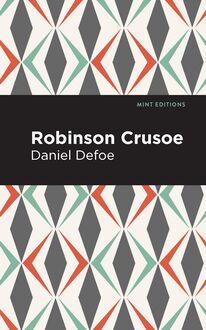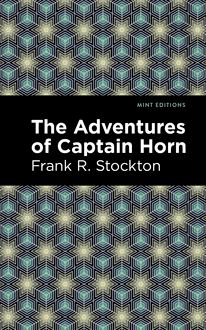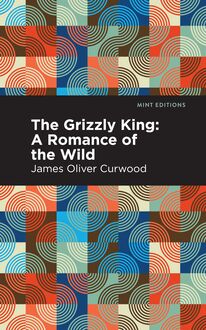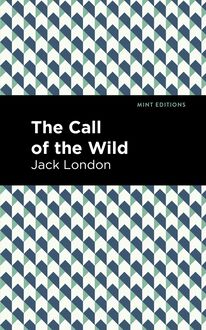-
 Univers
Univers
-
 Ebooks
Ebooks
-
 Livres audio
Livres audio
-
 Presse
Presse
-
 Podcasts
Podcasts
-
 BD
BD
-
 Documents
Documents
-
- Cours
- Révisions
- Ressources pédagogiques
- Sciences de l’éducation
- Manuels scolaires
- Langues
- Travaux de classe
- Annales de BEP
- Etudes supérieures
- Maternelle et primaire
- Fiches de lecture
- Orientation scolaire
- Méthodologie
- Corrigés de devoir
- Annales d’examens et concours
- Annales du bac
- Annales du brevet
- Rapports de stage
La lecture à portée de main
Vous pourrez modifier la taille du texte de cet ouvrage
Découvre YouScribe en t'inscrivant gratuitement
Je m'inscrisDécouvre YouScribe en t'inscrivant gratuitement
Je m'inscrisEn savoir plus
Vous pourrez modifier la taille du texte de cet ouvrage
En savoir plus

Description
James Langdon enjoys his practice of hunting bears in the forests of Canada, convinced that there are few greater thrills. However, as he sets out on a hunt for a towering grizzly bear, Langdon makes a stunning discovery. Different from the start, the hunt begins after the giant grizzly, who is named Thor, is injured by a hunter. While nursing his wounds, Thor meets a young black bear cub, who had recently been orphaned. Taking the young cub under his care, the two bears enjoy the peaceful riches of the Canadian wilderness, picking berries, fishing, and meeting other animals. However, Langdon is on their trail, and determined to kill Thor, hungry for the acclaim and the thrill of defeating such a large animal. But, when the three finally cross paths, they each find themselves surprised by their own instincts. With gorgeous description, surprising humor, and complex characters, James Oliver Curwood’s The Grizzly King: A Romance of the Wild is a unique masterpiece. First published in 1916, this reflective adventure novel documents Curwood’s change of mind regarding conservation. Once an avid hunter himself, Curwood wrote The Grizzly King: A Romance of the Wild to encourage others to appreciate nature without harming it. Featuring a rare point of view, Curwood created a gripping and beautiful tale that considers multiple perspectives. The Grizzly King: A Romance of the Wild inspired a film adaptation titled The Bear, and remains to a fan-favorite of the prolific author’s work. This edition of The Grizzly King: A Romance of the Wild by James Oliver Curwood now features a new, eye-catching cover design and is printed in a font that is both modern and readable. With these accommodations, this edition of The Grizzly King: A Romance of the Wild crafts an accessible and pleasant reading experience for modern audiences while restoring the original beauty of James Oliver Curwood’s literature.
Sujets
Informations
| Publié par | Mint Editions |
| Date de parution | 14 mai 2021 |
| Nombre de lectures | 0 |
| EAN13 | 9781513285733 |
| Langue | English |
| Poids de l'ouvrage | 2 Mo |
Informations légales : prix de location à la page 0,0450€. Cette information est donnée uniquement à titre indicatif conformément à la législation en vigueur.
Extrait
The Grizzly King
A Romance of the Wild
James Oliver Curwood
The Grizzly King: A Romance of the Wild was first published in 1916.
This edition published by Mint Editions 2021.
ISBN 9781513280714 | E-ISBN 9781513285733
Published by Mint Editions®
minteditionbooks .com
Publishing Director: Jennifer Newens
Design & Production: Rachel Lopez Metzger
Project Manager: Micaela Clark
Typesetting: Westchester Publishing Services
C ONTENTS I II III IV V VI VII VIII IX X XI XII XIII XIV XV XVI XVII XVIII XIX XX T HE V ALLEY OF S ILENT M EN
I
With the silence and immobility of a great reddish-tinted, rock, Thor stood for many minutes looking out over his domain. He could not see far, for, like all grizzlies, his eyes were small and far apart, and his vision was bad. At a distance of a third or a half a mile he could make out a goat or a mountain sheep, but beyond that his world was a vast sun-filled or night-darkened mystery through which he ranged mostly by the guidance of sound and smell.
It was the sense of smell that held him still and motionless now. Up out of the valley a scent had come to his nostrils that he had never smelled before. It was something that did not belong there, and it stirred him strangely. Vainly his slow-working brute mind struggled to comprehend it. It was not caribou, for he had killed many caribou; it was not goat; it was not sheep; and it was not the smell of the fat and lazy whistlers sunning themselves on the rocks, for he had eaten hundreds of whistlers. It was a scent that did not enrage him, and neither did it frighten him. He was curious, and yet he did not go down to seek it out. Caution held him back.
If Thor could have seen distinctly for a mile, or two miles, his eyes would have discovered even less than the wind brought to him from down the valley. He stood at the edge of a little plain, with the valley an eighth of a mile below him, and the break over which he had come that afternoon an eighth of a mile above him. The plain was very much like a cup, perhaps an acre in extent, in the green slope of the mountain. It was covered with rich, soft grass and June flowers, mountain violets and patches of forget-me-nots, and wild asters and hyacinths, and in the centre of it was a fifty-foot spatter of soft mud which Thor visited frequently when his feet became rock-sore.
To the east and the west and the north of him spread out the wonderful panorama of the Canadian Rockies, softened in the golden sunshine of a June afternoon.
From up and down the valley, from the breaks between the peaks, and from the little gullies cleft in shale and rock that crept up to the snow-lines came a soft and droning murmur. It was the music of running water. That music was always in the air, for the rivers, the creeks, and the tiny streams gushing down from the snow that lay eternally up near the clouds were never still.
There were sweet perfumes as well as music in the air. June and July—the last of spring and the first of summer in the northern mountains—were commingling. The earth was bursting with green; the early flowers were turning the sunny slopes into coloured splashes of red and white and purple, and everything that had life was singing—the fat whistlers on their rocks, the pompous little gophers on their mounds, the big bumblebees that buzzed from flower to flower, the hawks in the valley, and the eagles over the peaks. Even Thor was singing in his way, for as he had paddled through the soft mud a few minutes before he had rumbled curiously deep down in his great chest. It was not a growl or a roar or a snarl; it was the noise he made when he was contented. It was his song.
And now, for some mysterious reason, there had suddenly come a change in this wonderful day for him. Motionless he still sniffed the wind. It puzzled him. It disquieted him without alarming him. To the new and strange smell that was in the air he was as keenly sensitive as a child’s tongue to the first sharp touch of a drop of brandy. And then, at last, a low and sullen growl came like a distant roll of thunder from out of his chest. He was overlord of these domains, and slowly his brain told him that there should be no smell which he could not comprehend, and of which he was not the master.
Thor reared up slowly, until the whole nine feet of him rested on his haunches, and he sat like a trained dog, with his great forefeet, heavy with mud, drooping in front of his chest. For ten years he had lived in these mountains and never had he smelled that smell. He defied it. He waited for it, while it came stronger and nearer. He did not hide himself. Clean-cut and unafraid, he stood up.
He was a monster in size, and his new June coat shone a golden brown in the sun. His forearms were almost as large as a man’s body; the three largest of his five knifelike claws were five and a half inches long; in the mud his feet had left tracks that were fifteen inches from tip to tip. He was fat, and sleek, and powerful. His eyes, no larger than hickory nuts, were eight inches apart. His two upper fangs, sharp as stiletto points, were as long as a man’s thumb, and between his great jaws he could crush the neck of a caribou.
Thor’s life had been free of the presence of man, and he was not ugly. Like most grizzlies, he did not kill for the pleasure of killing. Out of a herd he would take one caribou, and he would eat that caribou to the marrow in the last bone. He was a peaceful king. He had one law: “Let me alone!” he said, and the voice of that law was in his attitude as he sat on his haunches sniffing the strange smell.
In his massive strength, in his aloneness and his supremacy, the great bear was like the mountains, unrivalled in the valleys as they were in the skies. With the mountains, he had come down out of the ages. He was part of them. The history of his race had begun and was dying among them, and they were alike in many ways. Until this day he could not remember when anything had come to question his might and his right—except those of his own kind. With such rivals he had fought fairly and more than once to the death. He was ready to fight again, if it came to a question of sovereignty over the ranges which he claimed as his own. Until he was beaten he was dominator, arbiter, and despot, if he chose to be. He was dynast of the rich valleys and the green slopes, and liege lord of all living things about him. He had won and kept these things openly, without strategy or treachery. He was hated and he was feared, but he was without hatred or fear of his own—and he was honest. Therefore he waited openly for the strange thing that was coming to him from down the valley.
As he sat on his haunches, questioning the air with his keen brown nose, something within him was reaching back into dim and bygone generations. Never before had he caught the taint that was in his nostrils, yet now that it came to him it did not seem altogether new. He could not place it. He could not picture it. Yet he knew that it was a menace and a threat.
For ten minutes he sat like a carven thing on his haunches. Then the wind shifted, and the scent grew less and less, until it was gone altogether.
Thor’s flat ears lifted a little. He turned his huge head slowly so that his eyes took in the green slope and the tiny plain. He easily forgot the smell now that the air was clear and sweet again. He dropped on his four feet, and resumed his gopher-hunting.
There was something of humour in his hunt. Thor weighed a thousand pounds; a mountain gopher is six inches long and weighs six ounces. Yet Thor would dig energetically for an hour, and rejoice at the end by swallowing the fat little gopher like a pill; it was his bonne bouche , the luscious tidbit in the quest of which he spent a third of his spring and summer digging.
He found a hole located to his satisfaction and began throwing out the earth like a huge dog after a rat. He was on the crest of the slope. Once or twice during the next half-hour he lifted his head, but he was no longer disturbed by the strange smell that had come to him with the wind.
II
A mile down the valley Jim Langdon stopped his horse where the spruce and balsam timber thinned out at the mouth of a coulee, looked ahead of him for a breathless moment or two, and then with an audible gasp of pleasure swung his right leg over so that his knee crooked restfully about the horn of his saddle, and waited.
Two or three hundred yards behind him, still buried in the timber, Otto was having trouble with Dishpan, a contumacious pack-mare. Langdon grinned happily as he listened to the other’s vociferations, which threatened Dishpan with every known form of torture and punishment, from instant disembowelment to the more merciful end of losing her brain through the medium of a club. He grinned because Otto’s vocabulary descriptive of terrible things always impending over the heads of his sleek and utterly heedless pack-horses was one of his chief joys. He knew that if Dishpan should elect to turn somersaults while diamond-hitched under her pack, big, good-natured Bruce Otto would do nothing more than make the welkin ring with his terrible, blood-curdling protest.
One after another the six horses of their outfit appeared out of the timber, and last of all rode the mountain man. He was gathered like a partly released spring in his saddle, an attitude born of years in the mountains, and because of a certain difficulty he had in distributing gracefully his six-foot-two-inch length of flesh and bone astride a mountain cayuse.
Upon his appearance Langdon dismounted, and turned his eyes again up the valley. The stubbly blond beard on his face did not conceal the deep tan painted there by weeks of exposure in the mountains; he had opened his shirt at the throat, exposing a neck darkened by sun and wind; his eyes were of a keen, searching blue-gray, and they quested the country ahead of him now with the joyous intentness
-
 Univers
Univers
-
 Ebooks
Ebooks
-
 Livres audio
Livres audio
-
 Presse
Presse
-
 Podcasts
Podcasts
-
 BD
BD
-
 Documents
Documents
-
Jeunesse
-
Littérature
-
Ressources professionnelles
-
Santé et bien-être
-
Savoirs
-
Education
-
Loisirs et hobbies
-
Art, musique et cinéma
-
Actualité et débat de société
-
Jeunesse
-
Littérature
-
Ressources professionnelles
-
Santé et bien-être
-
Savoirs
-
Education
-
Loisirs et hobbies
-
Art, musique et cinéma
-
Actualité et débat de société
-
Actualités
-
Lifestyle
-
Presse jeunesse
-
Presse professionnelle
-
Pratique
-
Presse sportive
-
Presse internationale
-
Culture & Médias
-
Action et Aventures
-
Science-fiction et Fantasy
-
Société
-
Jeunesse
-
Littérature
-
Ressources professionnelles
-
Santé et bien-être
-
Savoirs
-
Education
-
Loisirs et hobbies
-
Art, musique et cinéma
-
Actualité et débat de société
- Cours
- Révisions
- Ressources pédagogiques
- Sciences de l’éducation
- Manuels scolaires
- Langues
- Travaux de classe
- Annales de BEP
- Etudes supérieures
- Maternelle et primaire
- Fiches de lecture
- Orientation scolaire
- Méthodologie
- Corrigés de devoir
- Annales d’examens et concours
- Annales du bac
- Annales du brevet
- Rapports de stage




















